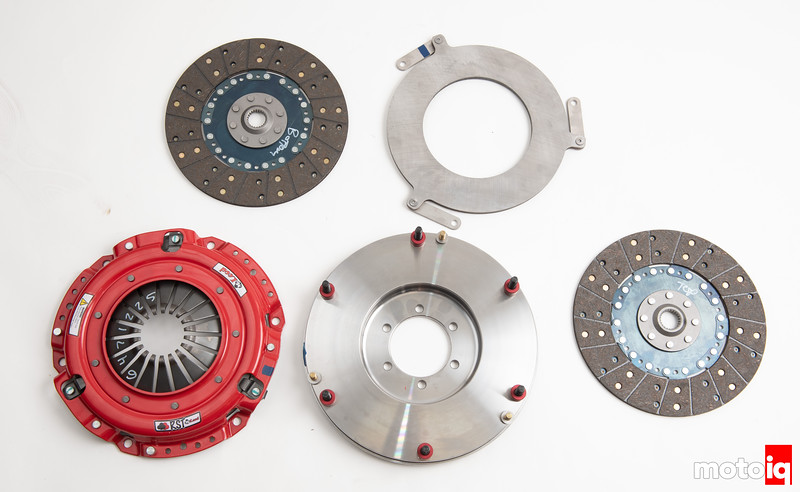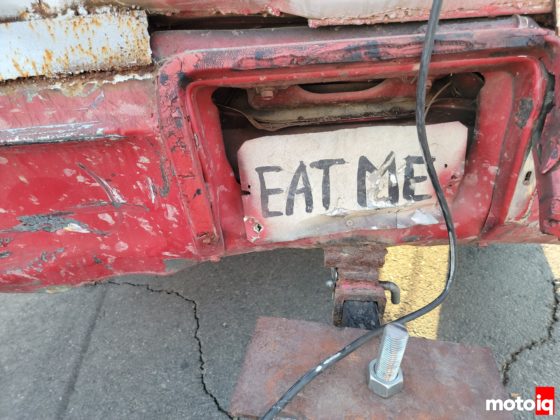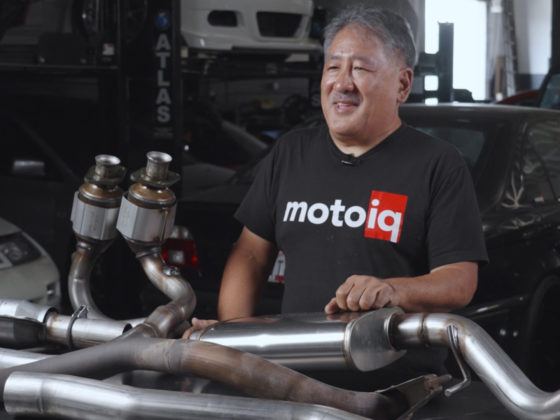
For Project Restomod RX-7 we are taking a somewhat different approach to modding a car. We are striving to refine and elevate the FD RX-7 in every way to better than OEM levels by using modern technology, materials, and my experience as a development driver for major OEMs. A good example of this would be in our clutch choice. Since we are planning on making more than double the stock power output, a significant upgrade in clutch holding power is going to be needed. Of course, a stiff and heavy clutch with a light switch engagement isn’t going to be acceptable. We reached out to our friends at McLeod Racing for a clutch solution that will be able to handle the power while keeping things drivable with smooth engagement and a light pedal.
Multi-disc clutches have a very similar pedal effort and clamping load to the stock clutch but gain their torque capacity by having multiple discs. In this case, having twice the surface area of the OEM clutch with only a slightly stiffer diaphragm spring will make the clutch effort similar to stock, which will be easy on the leg. However, we also demand a little refinement for our project. The typical race-type multi-disc clutch is very noisy, the floated plates and discs all bang around when the clutch is disengaged making clanking and ringing noises and the clutch has an on-off engagement and chatters and jerks as the car is getting underway. Enter McLeod who has succeeded in making a quiet, easier-to-drive twin disc clutch that can deliver on the track yet be minimally annoying on the street.
McLeod Racing is based locally to us in Southern California, and have been in the clutch business for over 50 years. Since being purchased by NHRA drag racer Paul Lee in 2008, McLeod has been one of the major players in the domestic market from Mustangs, Camaros, Charger/Challengers, and Vipers to hot-rods powered by any of the common domestic offerings. Recently, McLeod is making a larger impact on the sport compact market and currently offers their “Street Tuner” clutch package for the FD RX-7 (PN: 760995) for cars with mild bolt-ons that make 20-25% more power than stock. Since our Project will make significantly more power than that, we needed a clutch that was up to the task.

The McLeod RST clutch for the 1993+ Mazda “FD” RX-7 and stock 1×23 spline transmission (PN.6571225) comes with a lightweight flywheel CNC machined from billet alloy steel. The hardened steel starter ring gear must be purchased separately from suppliers like Atkins Rotary or Mazdatrix. This clutch is able to handle 800hp while remaining street-able. For most rotary applications, a steel flywheel is an ideal compromise between fast revving and drivability since rotaries have low rotational inertia and having a superlight flywheel will greatly hurt idle and drivability characteristics. Anything short of a race car, especially a naturally-aspirated road-race car, will benefit from a slightly heavier flywheel in the rotary world.

On the other side of the flywheel. The tall stand-offs and the black studs are to hold the top of the pressure plate while the shorter gold studs are the anchors for the drive straps for the floater. Rotary engines use a huge central nut to hold the stock counter-weighted flywheel or in our case, a eccentric shaft counterweight with six bolt holes to anchor it to the flywheel.

The more track-focused RXT line of clutches use a copper ceramic multi-puck clutch disc with a solid hub. There is something about McLeod’s friction material where even this sort of disc is amazingly smoother but since we wanted something even smoother we will be running something else.



